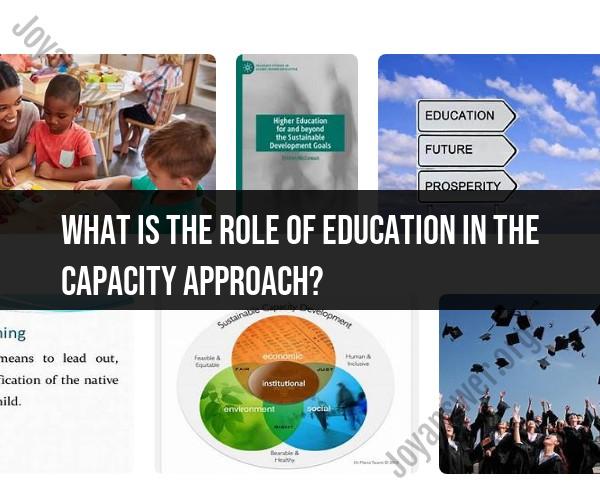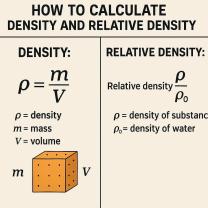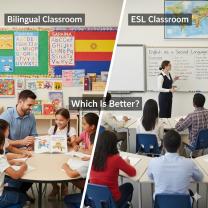What is the role of Education in the capacity approach?
The capacity approach, developed by economist Amartya Sen, emphasizes the importance of expanding individuals' capabilities and freedoms to lead the lives they value. Education plays a crucial role within the capacity approach as a means of fostering human development and enhancing people's capabilities to lead fulfilling lives. Here's how education contributes to the capacity approach and human development:
1. Empowerment and Agency:Education empowers individuals by equipping them with knowledge, skills, and information. It enhances their ability to make informed choices, engage in critical thinking, and exercise agency over their own lives. Education empowers people to pursue their goals, make decisions that align with their values, and participate actively in their communities.
2. Expanding Opportunities:Education broadens opportunities for individuals. It opens doors to a wider range of choices in terms of career paths, employment options, and personal aspirations. Through education, individuals can access a variety of opportunities that contribute to their well-being and development.
3. Human Capital Development:Education enhances human capital by equipping individuals with skills, expertise, and capabilities that are valuable in the job market. A well-educated workforce is more adaptable, innovative, and capable of contributing to economic growth and societal progress.
4. Social Inclusion and Equality:Education can contribute to reducing inequalities and promoting social inclusion. It provides marginalized groups with the tools to break the cycle of poverty and discrimination. Education equips individuals with the ability to advocate for their rights and participate in decision-making processes.
5. Health and Well-Being:Education is linked to better health outcomes and well-being. Educated individuals are more likely to have access to information about health, nutrition, and disease prevention. They can make informed decisions about their health and adopt healthier lifestyles.
6. Social Cohesion and Citizenship:Education fosters social cohesion by promoting understanding, empathy, and respect among diverse groups of people. It prepares individuals to be responsible citizens who are informed about societal issues, engaged in civic activities, and contributing positively to their communities.
7. Lifelong Learning:The capacity approach underscores the importance of lifelong learning. Education is not limited to formal schooling but extends throughout a person's life. Continuous learning enables individuals to adapt to changing circumstances, acquire new skills, and remain active contributors to society.
8. Fulfillment of Human Potential:Education helps individuals realize their full potential by nurturing their talents, passions, and interests. It allows them to explore various fields of knowledge and self-expression, contributing to a more enriching and fulfilling life.
In summary, education is a fundamental pillar of the capacity approach to human development. It empowers individuals, expands their capabilities, and enables them to lead lives that align with their values and aspirations. By investing in education, societies can unlock the potential of their citizens, promote equality, and foster holistic human development.













